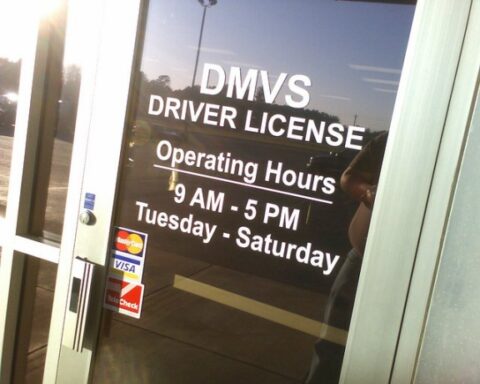Immigration at the Border

Alabama’s Anti-Immigrant Law Fosters Anti-Latino Discrimination
According to a new report from the National Immigration Law Center, anti-Latino discrimination is alive and well in Alabama, and has gotten a seal of approval from the governor and the state legislature. HB 56, the state’s increasingly infamous anti-immigrant law, went into effect on June 9, 2011, and has since inspired all manner of bias aimed at Latino residents of the state. Stories abound of police pulling over and harassing Latino drivers for no justifiable reason; cashiers demanding proof of legal status before they will take the money of Latino customers; white shoppers telling brown-skinned shoppers to “go back to Mexico.” In short, more and more self-appointed defenders of the nation’s immigration laws are degrading and dehumanizing their fellow Alabamans. In the process, they are dehumanizing themselves as well. Read More

California TRUST Act Awaits Governor’s Signature
The California TRUST Act (AB 1081) has now passed both houses of the state’s legislature and is awaiting Governor Jerry Brown’s signature. Passage of the TRUST Act would be an important step toward mitigating the harmful impact of the Secure Communities Program (S-Comm). Immigrant advocates from across the country are calling on Gov. Brown to sign the bill into law. Read More

Doing the Math: Immigration Detention Costs a Pretty Penny
By Dan Gordon, Communications Associate, National Immigration Forum. Congress will return to Washington after Labor Day amid talk of a “fiscal cliff,” yet loath to address the steep price American taxpayers shoulder to detain immigrants. Read More

DHS Says Safety Before Enforcement in the Face of Hurricane Isaac
Today, U.S. Immigration and Customs Enforcement (ICE) and Customs and Border Protection (CBP) issued a joint letter stating that immigration enforcement actions would not take place if Hurricane Isaac puts people’s lives in danger. Read More

Why States Should Grant DACA Beneficiaries Driver’s Licenses
In the early 2000s, one of the ways states attempted to control unauthorized immigration was by limiting immigrant eligibility for driver’s licenses and state-issued identification documents. The arguments for and against extending eligibility for driver’s licenses to undocumented immigrants takes a new twist with the Deferred Action for Childhood Arrivals (DACA) program. Because those who receive deferred action will also receive work authorization, it seems only logical that they should have access to driver’s licenses, like many other people who have permission to remain in the country. But some are opposing extending licenses to this group, ignoring the fact that both safety and security argue in favor of generous licensing policies. Read More

Why Kobach’s Lawsuit Against Deferred Action is Unlikely to Stand Up in Court
Kris Kobach’s official job title is Kansas Secretary of State. But he is better known for drafting—and being hired to defend in court—state and local immigration laws designed to make undocumented residents “self-deport.” His two most notorious undertakings are Arizona SB 1070 and Alabama HB 56, which have largely been eviscerated by federal courts. Yesterday, Kobach embarked on a new legal escapade, filing a lawsuit to block the Obama administration from granting deferred action to so-called “DREAMERers,” undocumented immigrants who arrived in the country as children. Fortunately, although sure to generate headlines, the lawsuit has little chance of standing up in court. Read More

5 Ways DACA Renews the Conversation on Immigration Reform
There’s no doubt that recent implementation of the Deferred Action for Childhood Arrivals (DACA) initiative is the biggest thing to happen in immigration law in many years. While most of the attention is currently focused on how to make it work, how to apply and how to work out the kinks, it’s important to take a macro view at the ways this program can actually renew the entire conversation on immigration reform. Read More

Alabama Ruling Yet Another Rebuke to State Immigration Laws
As with the Supreme Court’s recent opinion on Arizona SB 1070, initial media coverage portrayed the (technically) mixed rulings on the Alabama and Georgia immigration laws as a split decision. But do not be fooled: yesterday’s opinions from the U.S. Court of Appeals for the Eleventh Circuit represent a sweeping win for the immigrants’ rights movement and a crushing blow to the legal crusade led by Kris Kobach. While yesterday’s victory was not unqualified, the provisions struck down by the Eleventh Circuit were far more significant than those that were upheld. Read More

How Deportations Devastate Families and Communities
It goes without saying that unauthorized immigrants live in constant fear of deportation. After all, any chance encounter with U.S. immigration officials can leave an unauthorized immigrant behind bars and in removal proceedings. Less obvious, perhaps, is the impact that deportations have on families and communities. A mother can be left to provide for the family alone when the father is deported. U.S.-born children can wind up in foster care when their parents are deported. And the more frequently such deportations occur, the greater is the pall of fear which hangs over entire immigrant communities. Read More

Busting Myths About Deferred Action
Beginning today, undocumented immigrants brought to the country as children may officially submit requests for deferred action, a form of prosecutorial discretion that protects recipients from deportation and allows them to work legally in the United States for up to two years. As might be expected, numerous inaccuracies have surfaced in media coverage and other commentary about the initiative, known formally as Deferred Action for Childhood Arrivals (DACA). Below, we address common falsehoods about deferred action in general and the Obama administration’s initiative in particular. Read More
Make a contribution
Make a direct impact on the lives of immigrants.
